With a close to perfect score, Andrew Fowler's team of Sam Hurst, Brendan Fafliani, John Sheehy, Nick Smyth, Guy O'Leary, Peter Bailey and Phil Lawton from Royal St George YC in Dublin, won the 2010 Royal Thames Cumberland Cup from Ian Ilsley's team from Yacht Club de Monaco writes Malcolm McKeag. Firm friend and arch-rival of the home side the Southern Yacht Club of New Orleans was third, claiming by dint of that result the Bourgne Cup, contested on each and every occasion the clubs meet, in whatever larger competition..
Over three days at Queen Mary Water hard by Heathrow airport the seven teams sailed a total of 54 races in the international yacht club contest, ferried to and fro from the RTYC's Knightsbridge clubhouse in that iconic symbol of London, a bright scarlet Routemaster double-decker omnibus.
Sailing in a fleet of eight carefully-matched modified J80s the competition began with a two-day double round-robin in which each team raced each other team twice. St George topped the league, winning 11 out of their 12 matches and losing only to the hosts and current holders, Royal Thames, and thus apparently setting the scene for the finals. It was a scene dramatically re-shaped by the winner-take-all nature of the Cumberland Cup's competition structure.
With teams travelling from across the globe to compete in this regatta, the organisers deliberately eschew a competition format that eliminates teams early from the competition, espousing instead a format that keeps every team sailing into the final round. The result is The Ladder, which as some teams including the hosts found to their cost might be better termed The Greasy Pole. On The Ladder, a win carries the double bonus of promotion to the next rung – but every loss earns the double-penalty of relegation. On The Ladder, it is just possible by dint of really good sailing to redeem a disappointing result in the round-robin and climb all the way to the top – as did the Monegasques – while the series leaders – in this case the Irish – must not put a foot wrong if they are to retain their fingertip grip on the crown.
Thus on Sunday The Ladder's first and lowest rung saw the Germans face-off against the Kiwis for a chance for stardom, while Royal St George had to wait patiently to see which of the Yanks (and it's not often the team from New Orleans are called Yankees!) and the Brits would be first to step up to try and knock them off their perch. As matters transpired, it was Royal Thames who beat the Southerners to race against the champs: to no avail. Royal St George won.
After Round One, the Brits began what turned out to be their slide down The Ladder, while the visitors from the Mediterranean climbed ever higher. The Southern, meanwhile, had to dispose of Royal Port Nicholson if they were to have a chance, in Round Three and the final round of The Ladder, of another crack at the leaders.
With Port Nich out of the way, the crunch race in Round Three was that between the Southern – highly vocal as always – and Monaco, who had quietly beaten Royal Thames when Ben Clothier of the host club earned a penalty for inadvertently but illegally 'sculling' the boat with the rudder while trying to slow down to block his rival. Given that in the round-robin YCdeM had lost almost as many races as they had won (and then been penalised a further point for a violent T-bone collision in their early race against St George) it is not unkind to suggest that their presence, by Round Three, on the top rung of The Ladder had been predicted by few. But Ian Ilsley, their team captain who by his own admission 'hadn't team raced for years' had by now earned both the respect of his rivals and the nickname 'the Old Fox'.
Southern, in blue jackets, began by blowing the yellows away at the start to be a comfortable and apparently safe 1-2 at the windward end of the course – but somehow one of the YCM team managed to get close enough on the long run to engage a blue boat and suddenly it was Game On again. On the final beat all four boats were mixed together and the denouement came – as so often in this two-boat team racing where the crucial factor is that the team with the boat in last place loses the match – at, beyond, above and back round again to the finishing line, with a Southern boat blocking out one Monaco boat only to find his own way back blocked by the other Monaco boat. And vice versa. Finally a Southern boat crossed the finish line – only to cop a penalty by blocking the path of the last returning Monaco boat under the rule that says a boat no longer racing must not interfere with one that is still racing.
And so it was a Monaco-Ireland final. If anyone thought this would be a walk-over for the Irish, they were wrong. Monaco had their tails up and no mistake. Once again it was their down-wind sailing that kept them engaged and it was not until the final mark, when the Monaco boat in second earned a penalty, that it really was Game Over.
Monaco were justly pleased with their Ladder climb from 4th place after the Round Robin – but none could nay-say the Irish for their win. 15 matches sailed and only one of them lost.
Photos below and on our gallery by Ingrid Abery
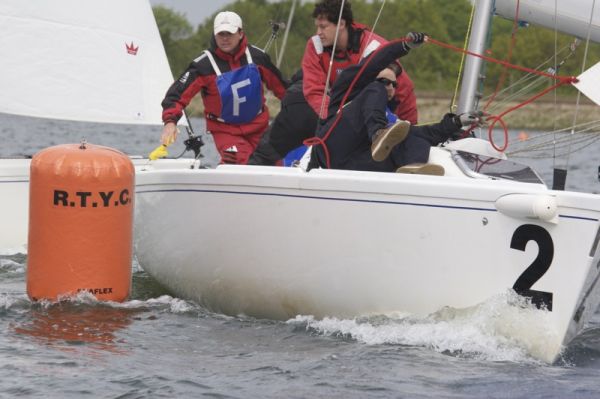
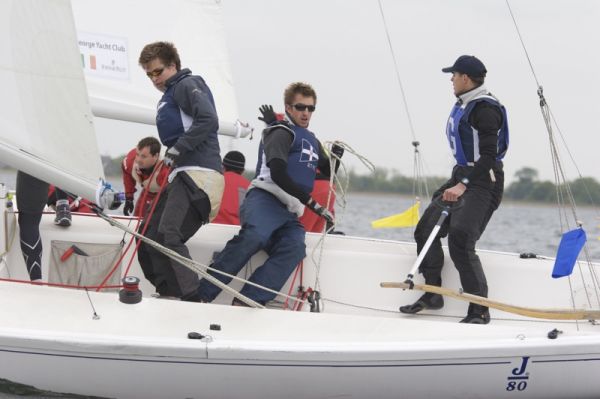
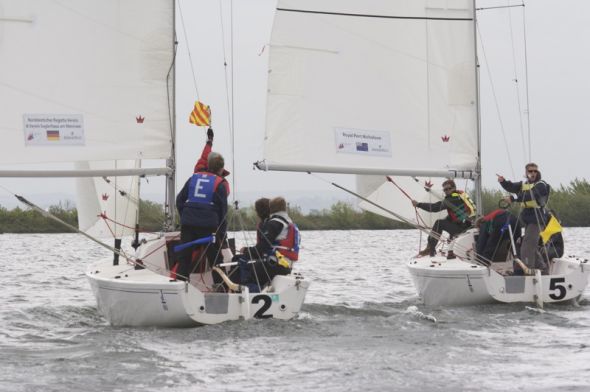
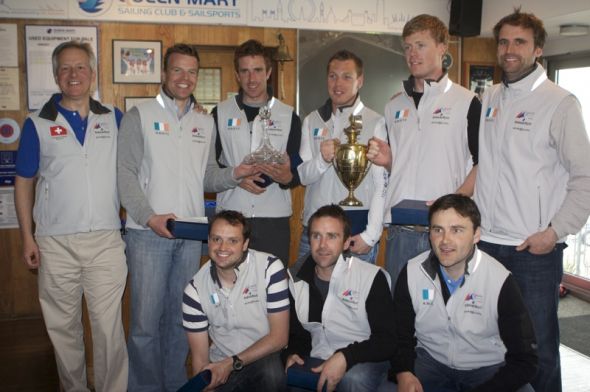
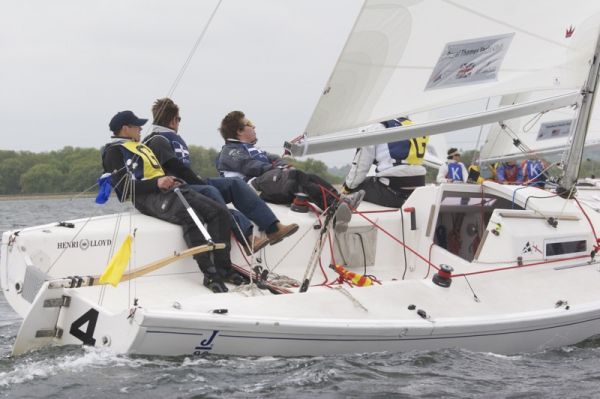
More photos here on our gallery.































































